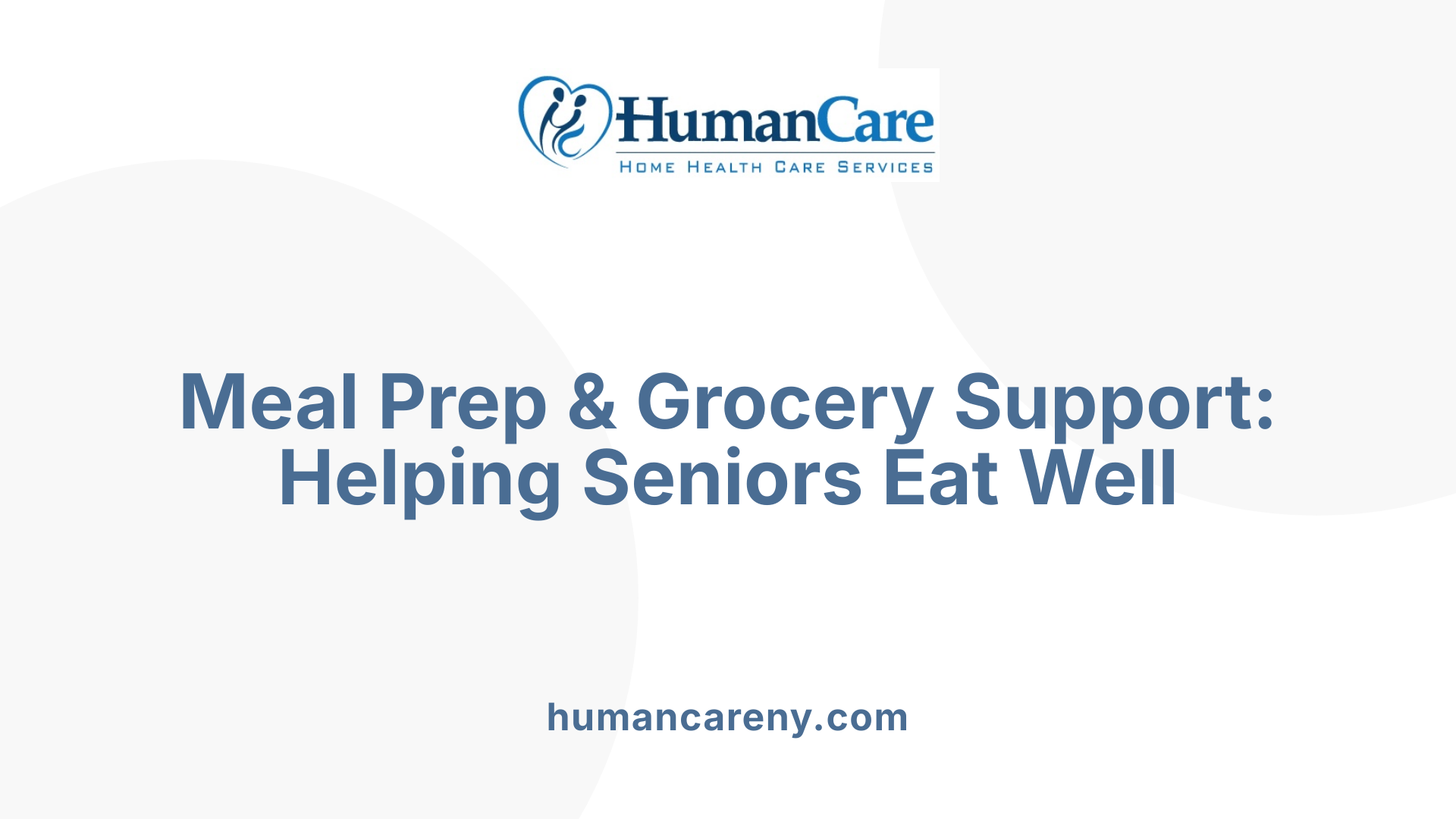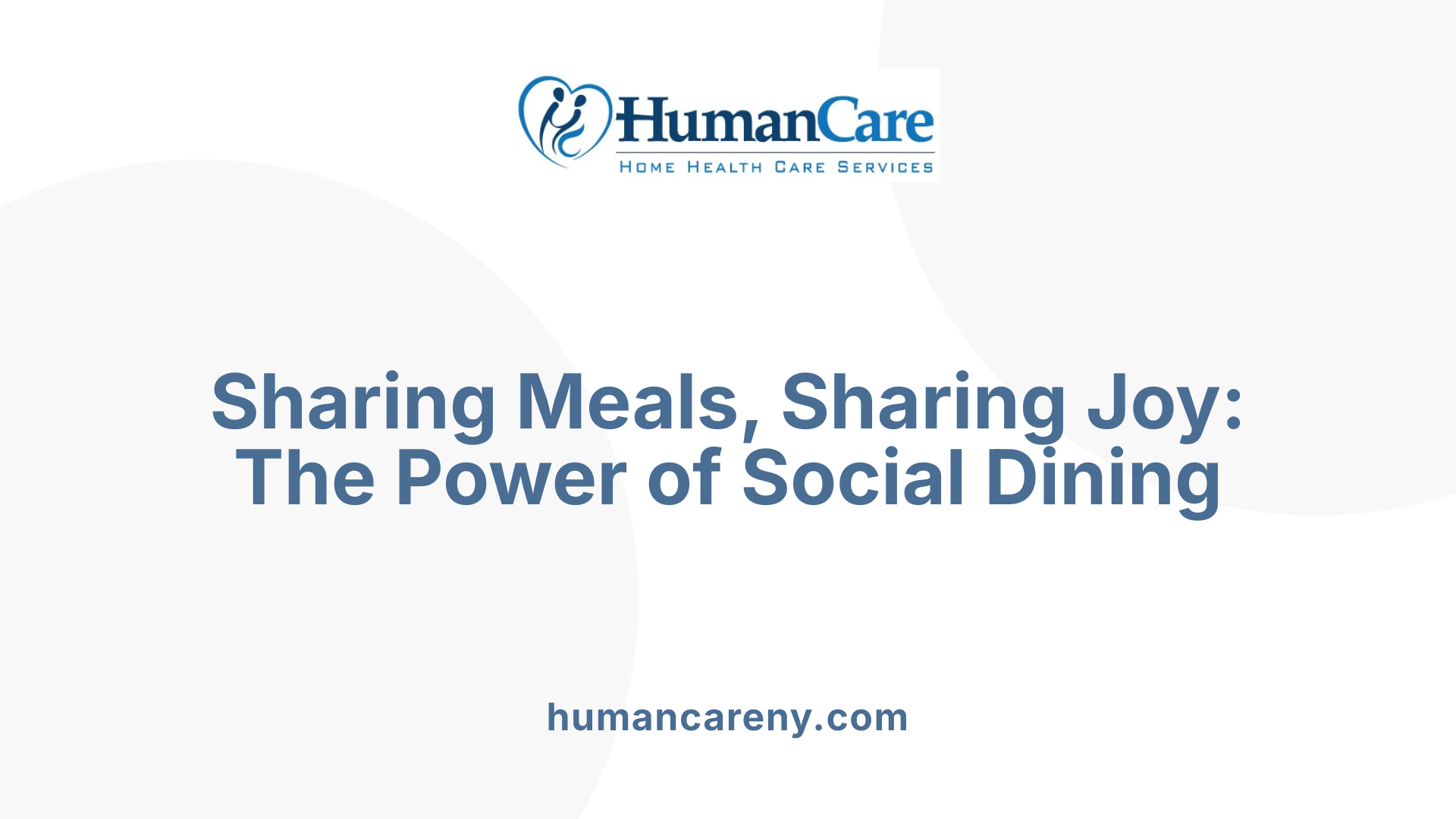Understanding the Role of Companion Care in Senior Nutrition
Proper nutrition is vital for seniors to maintain health, independence, and overall well-being. As they age, dietary needs evolve due to changes in metabolism, health conditions, and physical ability. Companion care at home offers tailored support to help seniors meet these changing needs, ensuring they enjoy nutritious, balanced diets that promote a high quality of life.
Supporting Nutritional Needs and Meal Planning

How does companion care support seniors with meal planning and nutrition?
Companion care plays a vital role in ensuring seniors maintain proper nutrition through comprehensive support in meal planning and preparation. Caregivers assist seniors in creating healthy, culturally appropriate meals that align with their tastes and medical needs. They help with grocery shopping, choosing fresh, locally sourced ingredients, and cooking meals that are both nutritious and appealing.
Caregivers collaborate with nutritionists and dietitians to develop tailored meal plans that cater to specific health conditions such as diabetes or hypertension. These plans emphasize balanced diets with sufficient fruits, vegetables, lean proteins, and whole grains. Additionally, companions promote hydration by encouraging regular intake of fluids and beverages suitable for individual health requirements.
Monitoring dietary intake is another essential aspect of their support. Caregivers keep track of what seniors eat, identify nutritional gaps, and communicate any concerns with healthcare professionals for timely adjustments. They ensure mealtime routines are comfortable and socially engaging, which can boost appetite and enjoyment of food.
This professional guidance and assistance help seniors preserve their strength, support immune functions, and sustain energy levels—all contributing to an overall better quality of life. Ultimately, companion care helps seniors retain independence in their nutrition while reducing health risks linked to poor diet quality.
The Benefits of Caregiver Assistance in Senior Nutrition
What are the benefits of companion care in helping seniors maintain a healthy diet?
Companion care plays a crucial role in ensuring seniors receive proper nutrition, which is vital for maintaining their health and independence. Caregivers assist with meal planning, grocery shopping, and cooking, making sure that meals are balanced and rich in essential nutrients such as calcium, vitamin D, fiber, and protein. They help adapt meals according to specific health conditions, including managing dietary restrictions for diabetes or hypertension.
In addition to the practical support, caregivers motivate seniors to make healthier food choices. They encourage regular eating and hydration, which helps in boosting immune function, maintaining energy levels, and preventing issues like dehydration. Caregivers often prepare and serve meals that are culturally sensitive and tailored to individual preferences, making mealtime enjoyable.
Social interaction during meals is another significant benefit. Eating together fosters connection, reduces feelings of loneliness, and encourages better eating habits. The companionship provided by caregivers makes seniors more willing to try new or favorite nutritious foods, improving their overall diet quality.
Monitoring nutritional intake is also a vital component. Caregivers observe eating patterns and look for signs of poor nutrition or health concerns, alerting family members or healthcare professionals when necessary. This proactive approach helps in early detection of issues like appetite loss or dental troubles, potentially avoiding more severe health problems.
Furthermore, caregiver assistance alleviates the stress often associated with meal preparation and decision-making. It simplifies daily routines by providing pre-prepared or ready-to-cook options, reducing the risk of food waste and ensuring proper portioning. This support allows seniors to focus on other activities, promoting mental engagement and emotional well-being.
Overall, companion care enhances seniors’ ability to access nutritious, enjoyable meals while fostering social interaction and supporting their health management efforts. This comprehensive assistance not only improves their physical health but also enriches their quality of life, making aging at home a more positive experience.
Promoting Nutritional Well-Being and Emotional Support

How do shared meals and social dining enhance mood and appetite?
Sharing meals with caregivers or other seniors creates a friendly and comforting environment that can significantly boost mood. Social dining makes eating a pleasurable activity rather than a routine task, encouraging seniors to eat more and enjoy a variety of nutritious foods. This interaction not only improves appetite but also fosters a sense of community, reducing feelings of loneliness and social isolation.
Engaging in communal eating experiences can lead to increased food intake, especially among seniors who might struggle with motivation or appetite due to health or cognitive issues. The visual and sensory cues from shared meals stimulate the desire to eat, supporting better nutritional intake and overall wellness.
How does emotional support from caregivers during mealtime contribute?
Caregivers offer vital emotional reassurance during meals, creating a positive and relaxed dining atmosphere. This support helps alleviate anxiety or discomfort related to eating, especially for seniors with dental challenges, swallowing difficulties, or other health concerns.
By engaging in conversations, offering encouragement, and respecting seniors’ preferences and pace, caregivers help make mealtime a safe and enjoyable social activity. Such emotional support enhances the overall dining experience, making seniors more likely to eat sufficient, nutrient-rich foods.
What strategies are effective in preventing and addressing nutritional deficiencies?
Preventive strategies include personalized meal planning aligned with medical needs and dietary preferences, regular monitoring of nutritional intake, and encouraging hydration. Caregivers assist with grocery shopping to ensure access to a variety of fresh, locally sourced ingredients, which are essential for balanced nutrition.
Addressing deficiencies involves collaborating with nutritionists to tailor meals that compensate for gaps in vitamins or minerals, such as calcium, vitamin D, and fiber. Routine assessments help identify early signs of poor nutrition, allowing timely adjustments.
Meal prep techniques like batch cooking or pre-portioned servings reduce daily decision-making stress for seniors, supporting consistent nutrient intake. Encouraging the consumption of culturally familiar, visually appealing foods further motivates seniors to maintain a healthy diet.
Why is the inclusion of culturally sensitive and appealing foods important?
Culturally tailored meals respect individual preferences and dietary traditions, making seniors more inclined to eat and enjoy their food. BrightStar Care, for example, offers dishes like grilled fish tacos or baked chicken fajitas, which align with diverse cultural backgrounds and promote health.
Appealing presentation and familiar flavors help reduce mealtime boredom and enhance emotional well-being. When seniors see foods they recognize and enjoy, their appetite increases, and they are more likely to consume appropriate portions of nourishing meals.
How does companionship during meals reduce social isolation?
Companionship plays a crucial role in alleviating feelings of loneliness that many seniors face. Eating together transforms a solitary necessity into a social, engaging activity.
Regular shared meals with caregivers or other seniors foster connections, encourage conversation, and give seniors a sense of belonging. This social interaction not only improves psychological health but also stimulates appetite, leading to better nutritional intake.
In conclusion, supporting seniors through shared meals, emotional engagement, culturally sensitive foods, and social companionship significantly impacts their nutritional health and emotional resilience. These strategies collectively contribute to improved quality of life, enhanced independence, and overall well-being.
Methods and Strategies to Improve Seniors' Nutritional Habits

What methods are used by companion care providers to improve seniors' nutritional habits and meal planning?
Companion care providers employ a variety of approaches to help seniors maintain healthy eating habits. One common strategy is creating colorful, well-balanced meals tailored to individual preferences. These meals are not only nutritious but also visually appealing, encouraging seniors to eat more and enjoy their food.
To support consistent calorie and nutrient intake, caregivers often prepare small, frequent meals or snacks throughout the day. This approach helps seniors who may have decreased appetites or specific medical conditions that require careful dietary management.
Adjusting food textures is another essential method, especially for seniors with difficulties swallowing or dental challenges. Caregivers modify foods to be softer, puréed, or mechanically appropriate, making meals safer and more accessible.
Enhancing meal flavor without excessive salt is crucial, particularly for seniors managing hypertension or heart disease. Caregivers use herbs, spices, and natural flavorings to make meals delicious while limiting sodium intake.
In addition, caregivers promote the use of community resources like Meals on Wheels, local food banks, and online grocery delivery services. These services ensure seniors have consistent access to fresh, healthy foods without the burden of shopping.
Monitoring nutritional intake is also vital — caregivers observe eating patterns, look for signs of malnutrition, and communicate with healthcare professionals to tailor nutritional strategies. This collaborative approach ensures that each senior’s unique needs are met.
Overall, these methods focus on creating safe, satisfying, and nutritious meals that support seniors’ health, independence, and overall well-being.
The Impact of Companion Care on Senior Independence and Health Outcomes

Why is companion care important for maintaining dietary health and independence among seniors?
Companion care plays a vital role in helping seniors preserve their independence while ensuring they receive proper nutrition. Trained caregivers assist with meal planning and grocery shopping, allowing seniors to choose foods they enjoy and that meet their dietary needs. This collaborative approach makes meal prep easier and less stressful.
Caregivers also support seniors in maintaining hydration by encouraging regular fluid intake, which is crucial for overall health. When managing chronic conditions such as diabetes or hypertension, caregiver assistance ensures meals follow medical recommendations. Specifically, they help prepare low-sodium, low-sugar, or balanced diets tailored to individual health plans.
Furthermore, companion care encourages the consumption of nutrient-dense foods with essential vitamins and minerals, including lean proteins, whole grains, fruits, and vegetables. This helps boost immune function, improve energy levels, and support cognitive health.
Shared mealtimes foster social interaction, which enhances emotional well-being and stimulates appetite. Social dining not only makes eating more enjoyable but also promotes healthy eating habits.
Caregivers contribute to early detection of nutritional deficiencies by monitoring dietary intake and physical health, facilitating timely interventions. This ongoing oversight helps prevent issues like dehydration, weight loss, or malnutrition.
Overall, companion care enhances seniors’ ability to live independently by supporting their nutritional needs, managing health conditions, and promoting active, healthy lifestyles. It empowers seniors to stay engaged and self-sufficient while enjoying improved quality of life.
Supporting independence in meal preparation and grocery shopping
Caregivers help seniors participate in meal planning and grocery shopping, fostering a sense of independence. They teach simple cooking tips and adapt recipes to suit personal preferences and dietary restrictions. By involving seniors in these activities, we promote cognitive engagement and self-confidence.
Reducing safety risks in kitchen activities
Companion caregivers assist with safe food handling, proper use of kitchen tools, and safe cooking practices. This reduces accidents like burns or falls, especially for seniors with mobility or balance issues.
Managing chronic health conditions with dietary adjustments
Caregivers work closely with healthcare providers to develop meals that align with medical guidelines. This includes low-sodium diets for hypertension or carbohydrate-controlled plans for diabetes. Consistent adherence to these diets helps mitigate health risks.
Monitoring and early detection of nutritional deficiencies
Regular observation of eating habits and physical health allows caregivers to spot signs of nutritional gaps early. Prompt adjustments, including supplements or dietary changes, help maintain optimal health.
Enhancing overall health, energy, and cognitive function
Proper nutrition supports bodily functions, boosting energy, maintaining muscle mass, and safeguarding cognitive abilities. It also strengthens the immune system, reducing illness and hospitalization risks.
| Aspect | Role of Companion Care | Benefits |
|---|---|---|
| Meal Planning | Customized, nutritious meal options | Improves dietary adequacy and satisfaction |
| Grocery Shopping | Selecting nutrient-rich foods | Ensures dietary needs are met |
| Meal Preparation | Cooking and serving meals | Supports health and independence |
| Monitoring Intake | Tracking food and fluid consumption | Detects deficiencies early |
| Social Dining | Shared meals with caregivers | Enhances emotional well-being |
| Safety & Hygiene | Safe food handling and kitchen safety | Reduces accidents |
| Health Management | Adhering to dietary restrictions | Manages chronic conditions |
In summary, companion care provides comprehensive support that bolsters seniors’ ability to eat well, stay healthy, and maintain independence. By combining practical assistance with compassionate engagement, caregivers help seniors enjoy a better quality of life through better nutrition and sustained wellbeing.
Empowering Older Adults for Better Nutrition and Independence
Companion care plays a pivotal role in ensuring that seniors receive proper nutrition and maintain their independence. By assisting with meal planning, grocery shopping, meal preparation, and providing emotional and social support, caregivers help older adults enjoy a nutritious, balanced diet tailored to their needs. This not only improves their physical health but also enhances their mental and emotional well-being, reducing risks of malnutrition, chronic disease complications, and social isolation. As a result, seniors can enjoy a higher quality of life, greater autonomy, and a greater sense of dignity in their daily routines.
References
- How Diet Affects Seniors and How Meal Planning Can Help
- The Importance of Home Care in Supporting Senior ...
- How Companion Care Helps Seniors Live at Home Longer
- The Benefits of Meal Planning for Seniors at Home
- How a Caregiver Can Help in Meal Planning
- Nutrition and Meal Planning for Seniors
- Nutrition and Meal Planning for Seniors



